Digital & Data
The widespread availability of high quality digital infrastructure is essential to support economic growth and harness the potential of data to improve services, reduce disruptions and limit emissions.
Updated:

Summary
Digital connectivity has become a necessity, linking homes and businesses across the UK with faster and reliable mobile and broadband connections.
Its increasing importance to the functioning of the economy has been shown during the Covid-19 pandemic, with widescale home working highlighting the value of reliable connections.
The Commission therefore advises government on how it can best work alongside industry and Ofcom to support the widespread rollout of new networks – including 5G and gigabit-capable fibre broadband – in order to maximise the value of digital technologies to the economic growth, resilience and people’s lives.
Positive progress has been made: for example, the UK now has superfast broadband availability to 97 per cent of premises; and the Commission’s recent social research found that digital is the sector with the highest public confidence that it will meet their needs over the next thirty years.
Digital solutions can also help infrastructure operators and regulators manage our critical national systems more effectively, while sharing data, with the appropriate security and privacy arrangements, can catalyse innovation and improve the outcomes for users. For instance, artificial intelligence techniques can deliver realtime insights into infrastructure assets and systems, enabling greater efficiency: analysis suggests that artificial intelligence could add over 10 per cent to the UK economy by 2030.
In addition to work on standardising approaches to data collection and sharing, the Commission works with partner bodies to encourage the development of systems which monitor infrastructure in real time and have predictive capability to help manage, predict and understand the UK’s increasingly integrated infrastructure systems.
The Second National Infrastructure Assessment – published in October 2023 – includes recommendations on delivering gigabit capable connectivity, accelerating the market-led deployment of 5G and action to identify the telecommunications needs of different infrastructure sectors.
Data sets for digital & data
A range of data sets relating to the digital and data theme is available to review on our Data pages. This includes data sets used in Commission reports, as well as historic data sets. Each can be reviewed online or downloaded.
Review dataNext Section: Key issues
Here you will find a summary of the Commission’s position on key issues emerging from our work related to digital communications and data.
Key issues
Here you will find a summary of the Commission’s position on key issues emerging from our work related to digital communications and data.
Full fibre rollout and digital connectivity
Digital connectivity has become an essential service, vital to the country’s economic growth and to people’s quality of life. Businesses, charities and public sector organisations are dependent on digital technology to operate effectively. Individuals rely on digital services to perform day-to-day tasks, access public services and shop online. Future innovations will increasingly rely on digital connectivity, from connected and autonomous vehicles (CAVs) to new applications of virtual reality.
As well as offering benefits for home broadband users, enhanced digital connectivity will also facilitate the development of 5G mobile communications and smart infrastructure, enabling more agile and more efficient management and maintenance.
The Second National Infrastructure Assessment recognised that coverage of gigabit capable connectivity has improved in recent years. But to ensure the UK meets the target of nationwide coverage by 2030, it recommends that policy and regulation must continue to support private investment in networks and competition. Government should also finish delivering the £5 billion subsidy programme to provide coverage in the hardest to reach areas.
Data for the public good
This study demonstrated how new technologies such as artificial intelligence and machine learning could, in parallel with better data collection and management, help cut delays and disruptions across the UK’s increasingly inter-connected infrastructure networks.
A Digital Framework Task Group, set up in 2018, works across infrastructure sectors to realise the benefits of data. We have actively supported this group and the steps it is taking to develop appropriate data standards and work towards a National Digital Twin.
As part of its work on the second National Infrastructure Assessment, the Commission will be looking in more detail at how the digital transformation of infrastructure could deliver higher quality, lower cost, infrastructure services. More information on this project can be found in the Baseline Report.
Connectivity on road and rail networks
The Commission’s Connect Connected future study, published in 2016, set out a series of recommendations to ensure good mobile connectivity is available where we live, work and travel, and that the UK’s road and rail network is made 5G ready. Since then, progress has been made on widening 4G coverage and enabling the early rollout of 5G technologies.
In February 2020, our follow-up review on mobile connectivity on UK roads and railways called for further progress in four areas: government leadership; access to trackside land; overcoming commercial barriers through a competitive process and filling evidence gaps.
Headline recommendations
Ensure gigabit capable connectivity is available nationwide by 2030
Government should ensure that gigabit capable connectivity is available nationwide by 2030 by continuing to support network competition and market deployment, alongside delivering the £5 billion Project Gigabit programme to provide coverage to premises that are uncommercial.
Accelerate the market led deployment of 5G
Government must ensure the right conditions are in place to accelerate the market led deployment of 5G. By the end of 2025, government should:
- improve the consistency of approvals for 5G masts by planning authorities, including by allocating funding for local authority digital champions and publishing a list of the best and worst performing local authorities for site approvals
- work with Ofcom to encourage further use of the Shared Access Licence regime to speed up access to spectrum and open up opportunities for new services, including where increased power may be needed in some locations, and to ensure it supports localised private networks
- develop options for subsiding 5G coverage in uncommercial areas, should new use cases demonstrate the need for nationwide coverage.
Identify the specific telecommunications needs of the energy, water and transport sectors
Government should identify the specific telecommunications needs of the energy, water and transport sectors and ensure that infrastructure is delivered to meet these by, at the latest, 2030 for the energy and water sectors and 2035 for the road and rail sectors. Strategies for how this will be achieved must be set out by the end of 2025 for energy and water and by the end of 2026 for road and rail, including:
- the most cost effective network deployment models, and the extent to which infrastructure can be shared between different sectors
- a spectrum authorisation approach that ensures access to adequate spectrum, whether dedicated national bands or shared spectrum for infrastructure users
- clear responsibilities within government for delivering telecoms strategies
- consideration of whether dedicated networks and spectrum or upgrades to existing networks can meet specific public policy goals, including consistent and reliable rail passenger connectivity.
A data standard for freight data collection to support local authorities
Government should develop a data standard for freight data collection to support local authorities, outlining the requirements for technological capability, data requirements, and data format. Such a standard must seek to ensure consistent data quality and format across technologies to allow regional and national aggregation, and should be complete by the end of 2020.
The Government should task the Centre for Digital Built Britain with the establishment of a digital framework for infrastructure data
The Government should task the Centre for Digital Built Britain (CDBB) with the establishment of a digital framework for infrastructure data, drawing together key organisations and existing initiatives both large scale (BIM) and smaller scale:
- a. A Digital Framework Task Group for infrastructure data should be established with a high profile chair who can act as a national champion for this agenda.
- b. CDBB should set out a roadmap to a digital framework to develop standards and formats for collating and sharing data.
- c. Key organisations which should be involved in the Task Group and in developing the framework include the Alan Turing Institute, Infrastructure Client Group, Construction Leadership Council, Infrastructure and Projects Authority, Cambridge Centre for Smart Infrastructure and Construction, Project 13, Office for National Statistics, Ordnance Survey, Open Data Institute and the recently announced Geospatial Commission and Centre for Data Ethics and Innovation. Wider consultation input should also be sought from the digital twin working group referenced in section 5.
- d. On standards development, in order to understand the existing standards landscape thoroughly at both a national and supranational level and to ensure agility, CDBB should consult extensively with industry on current behaviours and future requirements for how different infrastructure sectors and sub-sectors use data. CDBB may wish to commission an external standards organisation to conduct some of this work on their behalf.
- e. IPA and ICG should be engaged closely when designing final data standards and performance measures. The ICG amongst others will also be important to consult with respect to appropriate safeguards for commercial confidentiality.
- f. There should also be close collaboration with CPNI and NCSC on security requirements and levels of access and to develop standards for security, consistent with the objectives of the framework and an agreed approach to risk management.
- g. In order to support effective implementation, CDBB should also lead a scoping exercise for a framework to assess industry progress in adopting and using the framework and to measure innovation.
- h. CDBB should complete these actions and provide a public report on progress by 1 September 2018, setting out their recommendations for next steps. The National Infrastructure Commission would assess this as part of its wider role in monitoring progress against its recommendations.
The Infrastructure Client Group and the Digital Framework Task Group Chair should lead industry engagement in the framework and cultivate a shift towards minimum levels of commercial confidentiality
The Infrastructure Client Group (ICG) and the Digital Framework Task Group Chair should lead industry engagement in the framework and cultivate a shift towards minimum levels of commercial confidentiality.
- a. ICG should report to CDBB on current industry compliance with minimum levels of commercial confidentiality agreed with CDBB in recommendation 1.
- b. ICG should work collaboratively with industry and the Digital Framework Task Group to identify opportunities to make data available and reduce the unnecessary use of commercial confidentiality (e.g. through reviewing and revising existing digital contracts), and should set out an agreed plan with milestones towards achieving the proposed shift.
- c. ICG should report on progress in reducing the application of commercial confidentiality to infrastructure data by December 2018.
The Digital Framework Task Group should work with the UK Regulators Network and relevant Government departments to review and, where possible, strengthen the role of economic regulators in driving up the quality and openness of infrastructure data
The Digital Framework Task Group (see recommendation 1) should work with the UK Regulators Network and relevant Government departments to review and, where possible, strengthen the role of economic regulators in driving up the quality and openness of infrastructure data. This should include:
- a. Participation by the UK Regulators Network in the formulation of the digital framework set up by CDBB to ensure that it is effectively aligned with regulatory work on innovation and data.
- b. Assessment of the potential role of regulators and of possible barriers within current regulatory frameworks regarding: ensuring compliance by regulated network operators and utilities with the national framework and adherence to data collection standards and formats; sharing of data to inform better understanding of asset performance and user experience; sharing of data across infrastructure sectors and the value chain to enable greater innovation in the development of new technologies and data management focused on better asset management and increased productivity.
- c. Support for CDBB’s engagement with network operators and utilities around the provision of data of verified quality to input to the development of a national infrastructure digital twin over the long term.
- d. Identification of relevant areas for further trials or studies to enable regulators, and regulated industries, to understand and demonstrate how monitoring technologies and data can support cost-effective maintenance decisions and proactive asset management, working with relevant research organisations.
CDBB should collaborate with the Alan Turing Institute and the UK Infrastructure Transitions Research Consortium in pioneering digital twin models
CDBB should collaborate with the Alan Turing Institute (ATI) and the UK Infrastructure Transitions Research Consortium (ITRC) in pioneering digital twin models with predictive capability in the UK. This initiative should draw upon the AI expertise concentrated in the UK across universities and the public and private sectors.
- a. CDBB should work with BEIS and other potential funders to take forward a digital twin pilot project to explore and experiment with the benefits of building a digital twin of a specific geographical area. CDBB, ATI and ITRC should draw upon input from the digital twin working group identified in section 5.
- b. A project review of the pilot digital twin should be completed by October 2018. This should consider the lessons learnt for any future development of larger-scale or more complex digital twins, and the most effective institutional structures to support continuing progress in this area.
Latest Updates

Digital future for UK roads network focus of new Commission study
Harnessing the potential of digitally connected autonomous cars and commercial vehicles to increase road safety, tackle congestion and improve the accessibility of transport services will be the focus of a new National Infrastructure Commission study on connected and automated mobility (CAM). The government has today (12 February) published the terms of reference for the study,...

Connected and automated mobility
A new study exploring the implications of this emerging technology for the future management of the UK's roads and digital infrastructure.
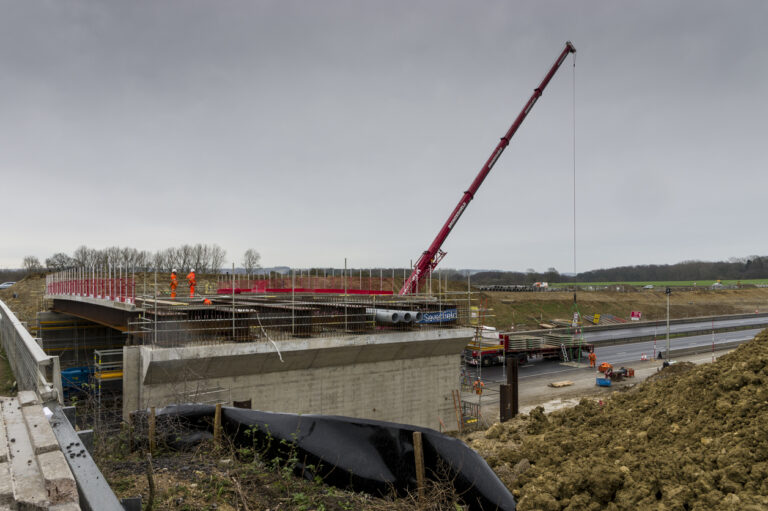
Cost effective delivery of infrastructure projects
Project exploring how the UK can build economic infrastructure more quickly and cheaply, and compare favourably with its international peers.

Unwrapping the Past: How telegraphs paved the way for today’s festive texts
These days, most people in the UK probably don’t give a second thought to the idea of emailing festive greetings: texting a quick ‘thank you’ on Christmas morning, or doing a video call with those who couldn’t be there to celebrate in person. Today’s smartphones conveniently allow us to communicate with others anywhere in the...

Historic Telecoms Datasets
Selected data on the UK's telecoms industry spanning as far back as 1851

Impact and costings for recommendations in the Second National Infrastructure Assessment
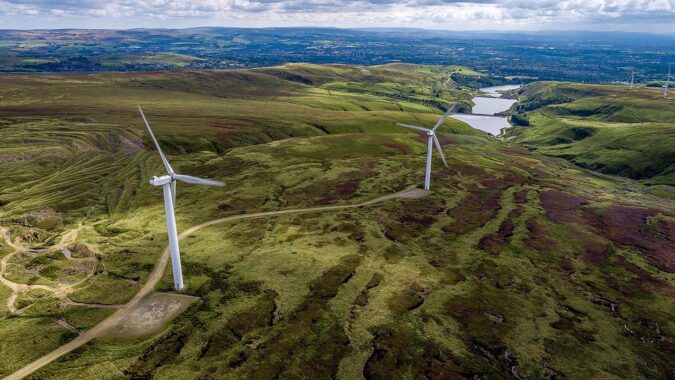
Long term review sets out pressing need to modernise infrastructure to support economic growth and climate action
Improved infrastructure to boost economic growth across the UK and meet climate goals is both achievable and affordable if the right policy steps are taken now, according to the government’s independent advisers on infrastructure strategy. The Second National Infrastructure Assessment – a five yearly review conducted by the National Infrastructure Commission – sets out a...

Analysys Mason – 5G wireless deployment scenarios
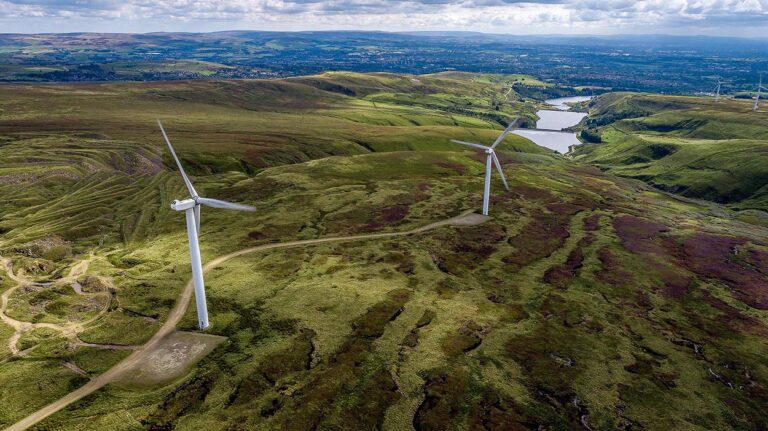
Second National Infrastructure Assessment
The Commission's thirty year plan for a low carbon and resilient UK economy that supports economic growth and protects the natural environment

National Infrastructure Assessment
An analysis of the UK’s long term economic infrastructure needs, outlining a strategic vision over the next thirty years.
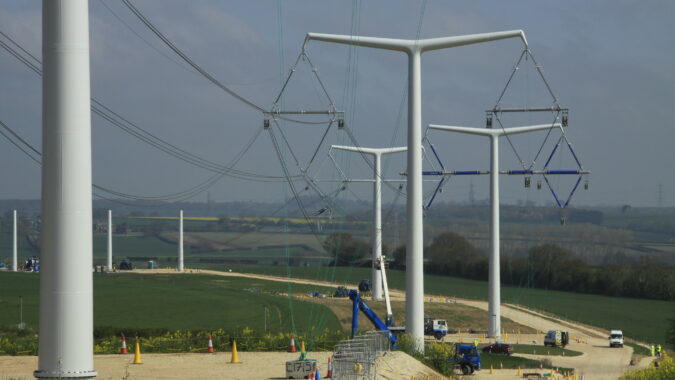
Stronger coordination of environment and community benefit needed to get planning timescales back on track
A new data platform to share environmental information and effective ways of addressing the impact of proposed infrastructure projects will enable stronger protection for natural habitats and speed up schemes crucial to the net zero transition, according to a new report by the National Infrastructure Commission. The review by the government’s official infrastructure advisers also...
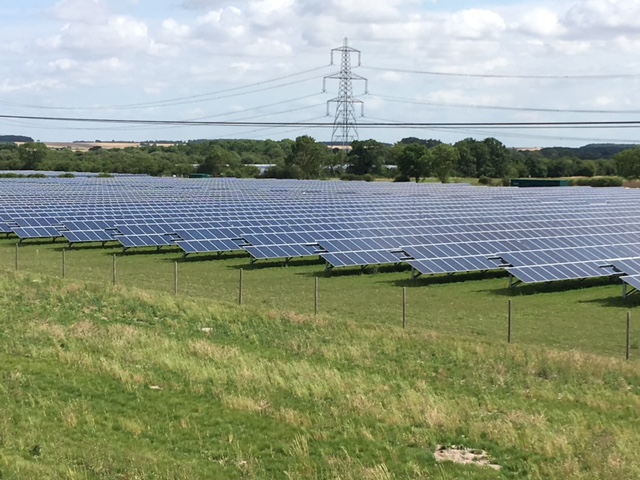
Infrastructure planning system
A short study reviewing the current processes for reviewing national policy statements for key infrastructure sectors

Delivering net zero, climate resilience and growth
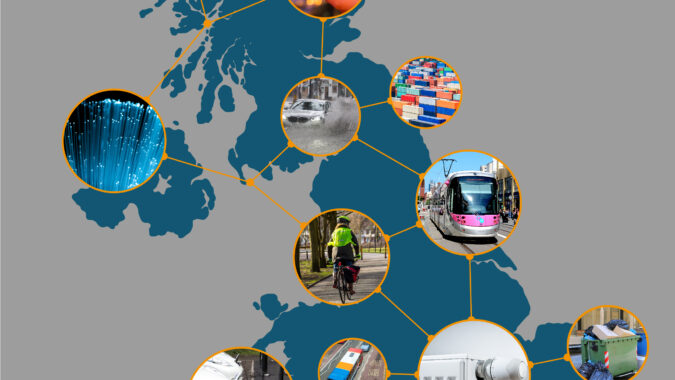
Go big where it counts to hit economic and climate goals, says Commission
Government must develop stronger staying power and focus on fewer, bigger, better targeted initiatives to deliver the infrastructure needed to meet its long term goals for economic growth and a lower carbon economy, the UK’s independent advisers on infrastructure have said. The last year has seen progress towards major infrastructure objectives “stutter further just as...
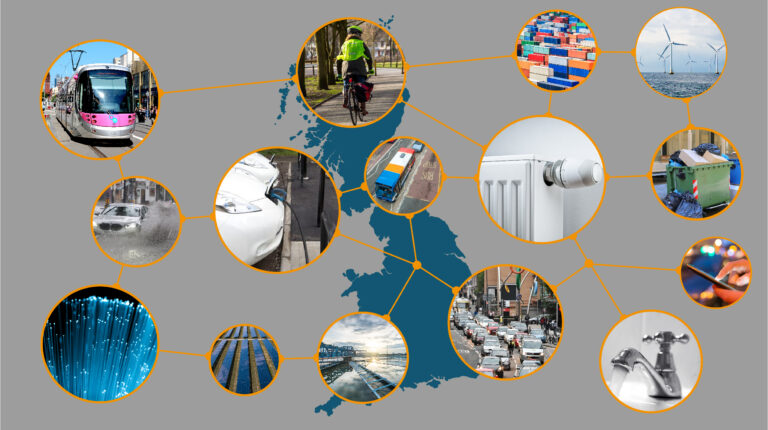
Infrastructure Progress Review 2023
Our annual monitoring report on government progress towards major infrastructure objectives.